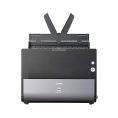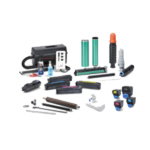
Symptoms may occur within seconds or minutes of alcohol exposure and could trigger after exposure to even tiny amounts of the allergen. Anaphylaxis is a life threatening condition that involves a series of symptoms, such as a rash, low pulse, and shock. Red wine tends to have higher levels of histamine than white wine or beer. Alcohol and other fermented products also contain histamine. Nasal polyps are swellings (noncancerous growths) that can grow from the lining of your nose. One polyp can form or there may be a number of polyps together.

The Reason Behind Sneezing After Drinking
- The most common signs and symptoms are stuffy nose and skin flushing.
- This involves avoiding the suspected allergen to see if symptoms improve.
- Steroid and antihistamine nasal sprays are usually recommended for non-allergic rhinitis.
- In some cases, over-the-counter or prescribed medications might help alleviate symptoms.
The symptoms are like those of hay fever, also called allergic rhinitis. A few alcohols are less likely to trigger symptoms in people with alcohol intolerance. However, if you have alcohol intolerance, you must talk to your doctor about which alcohols are best for you to drink. The good news is that alcohol intolerance isn’t too much of a concern. The bad news is that you can’t really do much about it, or that unwelcome nasal congestion that comes along with it, aside from just not drinking alcohol. Sublingual immunotherapy has gained popularity as a convenient and effective treatment for various allergies, including those triggered by alcohol.
Can you develop an allergy to alcohol later in life?

In rare cases, pain after drinking alcohol might be a sign that you have Hodgkin’s lymphoma. If you’re allergic to a specific ingredient in sneezing after drinking alcohol certain alcoholic drinks, switching to a different alcoholic drink may be an option. However, it’s important to read ingredient labels very carefully. Having a mild intolerance to alcohol or something else in alcoholic beverages might not require a trip to a doctor. Simply avoid alcohol, limit how much you drink or avoid certain types of alcoholic beverages. Alcohol intolerance can cause immediate, uncomfortable reactions after you drink alcohol.
Alcohol and Allergies: Discover Their Surprising Connection
Alcohol intolerance is most common in people of Asian descent because they are more likely to have a genetic mutation that prevents enzymes from breaking down alcohol. Food intolerances are far more common than food allergies, affecting up to 20% of people worldwide. People with histamine intolerance have decreased or inhibited enzymes that break down histamine from food. „Alcohol can also cause your blood pressure to go up and down by constricting and dilating blood vessels, which can worsen allergic reactions,“ Parikh says. You will have the option to discuss your results with an independent physician at no extra cost.
For example, barley is typically found in beer but not wine. Some people with Hodgkin’s lymphoma experience pain after drinking alcohol. Hodgkin’s lymphoma is a type of cancer that can affect your lymphatic system. Many people with Hodgkin’s lymphoma develop enlarged lymph nodes.
Dehydration can exacerbate allergy symptoms, such as dry throat, nasal congestion, and headaches. Additionally, dehydration can compromise the immune system and exacerbate inflammation, making allergic-like reactions more severe. One older study in people with asthma found that over 40 percent of participants said that drinking alcohol prompted allergy or allergy-like symptoms. Also, 30–35 percent said that it made their asthma worse. However, some people develop allergy-like symptoms, such as an itchy throat and nasal congestion, in response to the sulfites in wine. Depending on whether a person has an alcohol allergy or intolerance, they may need to avoid alcohol entirely.

Some health conditions can also cause alcohol intolerance, while others can cause increased alcohol sensitivity. Of course, if you have persistent rhinitis caused by an allergy, if you remove the source of the allergy, your symptoms should reduce and stop. This is one of the chemicals involved in allergy reactions. A spray can be used as required if you have mild symptoms. If you have persistent rhinitis caused by an allergy, by avoiding the cause of an allergy, symptoms should reduce and stop. Equally, if you have allergic rhinitis, you are more likely to develop eczema or asthma.
- The blood tests involve measuring specific antibodies to different allergens.
- Your doctor can usually diagnose allergic persistent rhinitis by talking to you about your symptoms and your medical history.
- The symptoms of histamine intolerance are similar to an allergic reaction.
- If an allergy to an ingredient in alcohol is suspected, an allergy test may be recommended.
- Therefore, one can be taken as required if symptoms are mild, or come and go.
If sneezing impacts your quality of life, talk to your doctor about ways to reduce or eliminate the problem. If you find that warm drinks make you sneeze, try chilling them before you drink them. This will help to soothe the mucous membranes in your nose and prevent them from swelling and triggering a sneeze. A skin test is the standard diagnostic tool for finding out if someone has allergies. A provider puts tiny amounts of potential allergens on your skin during a skin test.
Alcohol allergy vs. alcohol intolerance
After experiencing an allergic reaction to alcohol, consult a doctor for proper diagnosis and guidance on managing alcohol allergies or intolerances. To prevent future allergic reactions, it is recommended to avoid alcohol entirely if you have confirmed alcohol allergies. Allergic reactions to alcohol (ethanol) are very uncommon. Alcohol is more likely to cause flushing and irritant and contact reactions, but these reactions are not caused by an allergy to alcohol. Consuming alcohol can also increase the risk of severe allergic reactions (anaphylaxis) from other causes such as food. To boot, alcohol also inhibits the production of diamine oxidase (DAO), an enzyme responsible for breaking down histamine in the body.






















